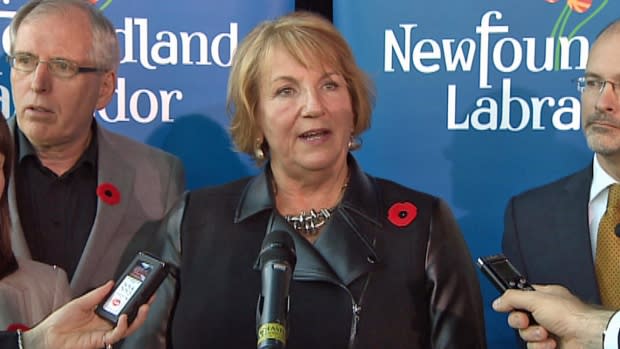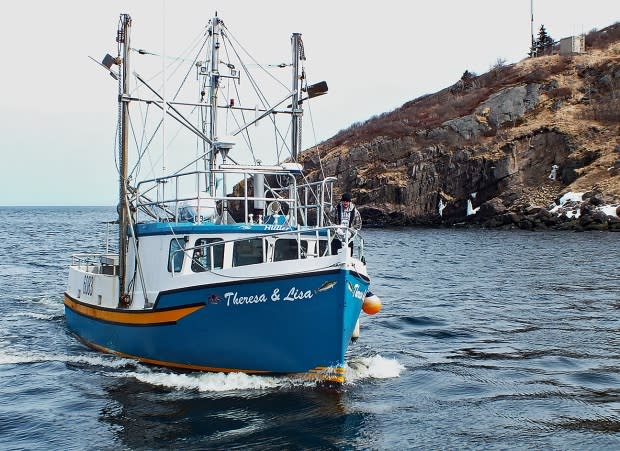PCs' policy on fish processing cost the industry millions, says Gerry Byrne
Fisheries Minister Gerry Byrne says the provincial industry lost millions when a compensation fund proposed as part of the Canada-European trade agreement was scrapped two years ago — and he blames the PC government of the day.
In 2013, negotiations between Canada and the European Union over the Comprehensive Economic and Trade Agreement, or CETA, included talks on how Newfoundland and Labrador might be compensated for losses once the deal was implemented. The provincial PC government of the time insisted on a $400-million compensation program, noted Byrne.
"I can certainly understand why they'd take that position," Byrne said.
But that fund never materialized, and Byrne today blames the loss of millions in compensation on the province's minimum processing requirements — or MPRs — which were established in 2001 to prevent processors from bypassing fish plants and sending whole fish directly to market.
"They effectively torpedoed their own arguments," he said.
"During the period of 2013, 2014 and 2015, while they were insisting that minimum processing requirements — if they were to be amended or changed in any way, shape or form — [that] a significant compensation program would have to be put in place by the feds. They had provided minimum processing exemptions for 92 different species or different instances."

Each species of fish landed in the province is on a list that specifies what has to happen to it before it's allowed to be exported. The idea was to protect jobs in the plants and add value to the fishery.
Fish processors in Newfoundland and Labrador have the right to ask the fisheries minister to allow them to skip minimum requirements and export unprocessed fish.
Typically, processors ask for exemptions because they have more fish than they can handle in their plants, there's a specific market opportunity or new market research. Sometimes it's not economically viable to process a particular species.
Byrne believes all the exemptions sent the message that if the processors and the provincial government were willing to export so much unprocessed fish, MPRs mustn't be all that valuable, and that's when a new condition came into play, that processors would have to prove losses under CETA to get the money.

The European side made eliminating MPRs an issue because they wanted to set a precedent for dealing with other countries in future agreements. The provincial government was deeply resistant to that, without a compensation fund to make up for potential losses to processors and help to upgrade technology to improve the industry overall.
In October 2013, then-premier Kathy Dunderdale announced the federal government had agreed to pay out $280 million of a $400-million fisheries improvement fund for the province.
Critics noted there were no federal representatives at Dunderdale's announcement, but she didn't seem too worried about that at the time.
"They asked us to wait a little while before we did this," she said. "And we have. And we've encouraged everyone from the prime minister to every other minister, senator, whatever, do be with us today. And you know, they're not here, so they'll have to speak to that piece."
Nobody really did answer that question, or cough up any money.

A year after the Dunderdale announcement, Paul Davis was premier and he was calling out Prime Minister Stephen Harper for putting new conditions on the money.
Harper said the fund was only meant to compensate processors for losses they could prove were due to CETA, and was not meant to be a general fisheries improvement fund.
Trudeau promised money during election campaign
Before Liberal Justin Trudeau was elected prime minister, he committed, in writing, to a $400-million fisheries transitional fund, but the money still never materialized.
Instead, in 2017, CETA came into effect with the provincial government agreeing to phase out MPRs. Then the federal government announced $325 million in an Atlantic Fisheries Fund, with about $100 million of that earmarked for Newfoundland and Labrador.
Judy Foote, a federal cabinet minister at the time, said Newfoundland and Labrador actually made out better with this deal than they would have under the CETA compensation deal. Skeptics asked how $100 million is better than $280 million, and Foote said there would be other, future investment.
FFAW not giving up
Two years later, the Fish, Food and Allied Workers Union is still not giving up on the original promise of $280 million from Ottawa.

President Keith Sullivan wants the issue back on the table in the coming federal election.
"Well, heading into the last election, the FFAW put out questionnaires to all parties, and the Liberal party at the time did commit to an investment of $400 million into a fund," he said.
"I guess it later became the Atlantic Fisheries Fund. We know there's a $100-million investment in that. Now, obviously, some level of investment was very good. Would we like to see more and fulfil the initial promise or what was said to be done? That's what we'd really like to see."
Read more from CBC Newfoundland and Labrador

